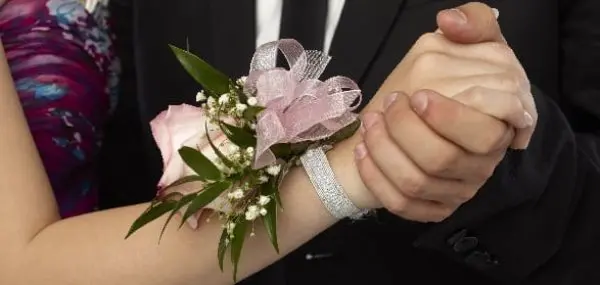Teen dating violence is probably the most complicated form of violence in society. What starts as a seemingly loving and caring relationship becomes a relationship where one person begins harming the other.

Those of us who are on the outside watching an abusive teenage relationships unfold feel helpless, powerless, and angry that our young people are being hurt. What are the warning signs of abuse in these teen relationships and how did we miss them?
Teen dating violence does not start on the first date. Abusive teen relationships typically start out as a wonderful and exciting typical new relationship. The couple spends lots of time together, talks often, and enjoys activities together. Unfortunately, in the case of teen dating violence, this fairy tale relationship changes into a source of anxiety, despair, sadness and fear. The transformation from love and hope to fear happens slowly over time.
How a Teen Relationship Becomes Abusive
Step 1: Jealousy
The transformation from love to fear typically starts with jealousy. Jealousy is a normal human emotion that usually occurs in the beginning stages of a relationship. As a healthy relationship grows, jealousy changes into trust, which is a building block of healthy intimacy. Conversely, as an abusive relationship grows, jealousy begins to manifest itself in very controlling behaviors.
Step 2: Control
The jealous person turns their intimate partner into a possession, and begins to tell them what they can do, where they can go, with whom they can socialize and what they can wear. While jealousy can often be confused with love, concern and positive attention, it is really a means to establish and maintain a relationship based on control rather than trust. JEALOUSY IS NOT LOVE.
Step 3: Isolation
As these dynamics progress, the abuser puts the teen victim in a position of having to choose between spending time with them versus spending time with the victim’s own family members and friends. Often, they will manipulate their victim into feeling guilty about spending time with family and friends and/or participating in extracurricular activities. Slowly, the offender isolates the victim, causing feelings of hopelessness and loneliness.
Warning Signs of an Abusive Relationship
Abuse in a teen relationship may be present when one partner:
- Accuses the girlfriend or boyfriend of cheating
- Threatens to hurt the girlfriend or boyfriend or a pet
- Apologizes for hurting the girlfriend or boyfriend, but does the same thing a couple of weeks later
- Makes the girlfriend or boyfriend feel like they don t have the right to say no
- Threatens or forces unwanted sexual activity
- Shares inappropriate information about the girlfriend or boyfriend
- Scares the girlfriend or boyfriend by acting violently, driving dangerously, yelling, calling them names and/or throwing things
Advice for Parents
Helping teens understand the dynamics of healthy relationships is critical.
1. Model positive relationships
We must emphasize and model relationships where each person’s opinion is valued, personal boundaries are respected, each person is treated as an equal, spending time with your own family and friends is important and where each person feels safe to be themselves, physically and emotionally.
2. Talk to your teens
Parents, talk to your teens about relationships. Even if they are not dating yet, use situations that you see on TV, movies and/or music videos to open the conversation about what is healthy and unhealthy in an intimate relationship. Prevention of teen violence is more than a one-time conversation; keep the door open for further discussion.
3. Provide support and reassurance
If you suspect that your teen is being harmed in their dating relationship, reassure them that it is not their fault and that you are there to help. Making a statement such as “No one, no matter what, deserves to be harmed in a relationship, allows your teen to hear from you that abusive behaviors are never acceptable.” Try not to give ultimatums, but work with your teen to come up with some solutions that work for both of you.

People rarely discuss teen dating violence stories. Educate yourself about the issues. For more information, visit domesticviolencecenter.org , jfsa-cleveland.org or loveisrespect.org. If someone needs help, call the Domestic Violence Center Helpline at 216-391-4357(HELP) or the National Teen Dating Violence Helpline at 1-866-331-9474.




